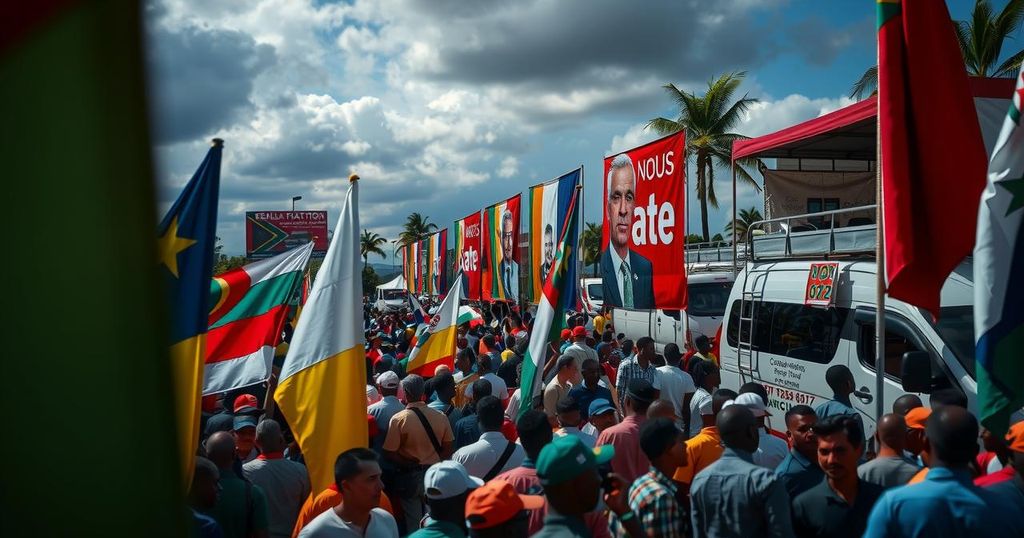Mauritius Elections: Ruling Party Seeks Second Term Amidst Political Scrutiny

On November 10, 2024, Mauritius held elections where Prime Minister Pravind Jugnauth’s ruling Militant Socialist Movement aimed to secure a second term. Amidst political scrutiny following a recent wiretapping scandal and social media ban, approximately one million voters participated in the elections for 62 parliamentary seats, with crucial implications for the country’s future governance in the face of an invigorated opposition.
Mauritius conducted elections on November 10, 2024, as the ruling Militant Socialist Movement (MSM), under Prime Minister Pravind Jugnauth, sought to secure a second five-year term in the nation’s 12th parliamentary elections since gaining independence in 1968. Approximately one million citizens were registered to vote, amidst a backdrop of recent governmental criticism related to the brief ban on social media platforms that followed a wiretapping scandal, which resulted in the public leaking of sensitive conversations involving prominent figures. Notably, Jugnauth faces opposition from Navin Ramgoolam, leader of the Alliance for Change. Known for its stable democracy and economic resilience, Mauritius has developed a diverse economy reliant on finance, tourism, and agriculture. Perched in the Indian Ocean, it ranks second in Africa on the Human Development Index, indicative of the high quality of life of its citizens. Mauritius has been celebrated globally for its economic achievements, even being briefly classified as a high-income country in 2020 before the economic strains caused by the COVID-19 pandemic. Voting has commenced for the 62 parliamentary seats, with the majority party or alliance expected to form the next government. The Electoral Supervisory Council also nominates an additional eight lawmakers, ensuring a broad representation within the parliamentary framework. The outcome of this election is significant given its implications not only for the local governance but also for the stability and future direction of this African nation.
Mauritius stands out as a model of stable democracy in Africa, having established a robust political and economic framework since its independence from Britain in 1968. The nation has consistently demonstrated remarkable economic growth, particularly in finance, tourism, and agriculture, earning recognition as a ‘beacon of success’ by institutions such as the World Bank. However, recent political controversies, such as the handling of a wiretapping scandal and subsequent social media bans, have raised concerns about civil liberties and political freedom. The 2024 elections are crucial in determining whether Prime Minister Pravind Jugnauth will retain power, particularly against the backdrop of an energized opposition, led by former Prime Minister Navin Ramgoolam. With a registered voting population exceeding one million, the elections hold significant importance in reinforcing or challenging the status quo within Mauritian politics.
The elections in Mauritius represent a pivotal moment for the nation as it confronts both internal challenges and opportunities for governance. With Prime Minister Pravind Jugnauth seeking re-election amidst political scrutiny, the role of the opposition led by Navin Ramgoolam becomes increasingly relevant. As citizens participate in the electoral process, the outcome could significantly influence the country’s trajectory as it navigates its path post-pandemic while striving to maintain its status as a leading democracy within Africa.
Original Source: apnews.com







